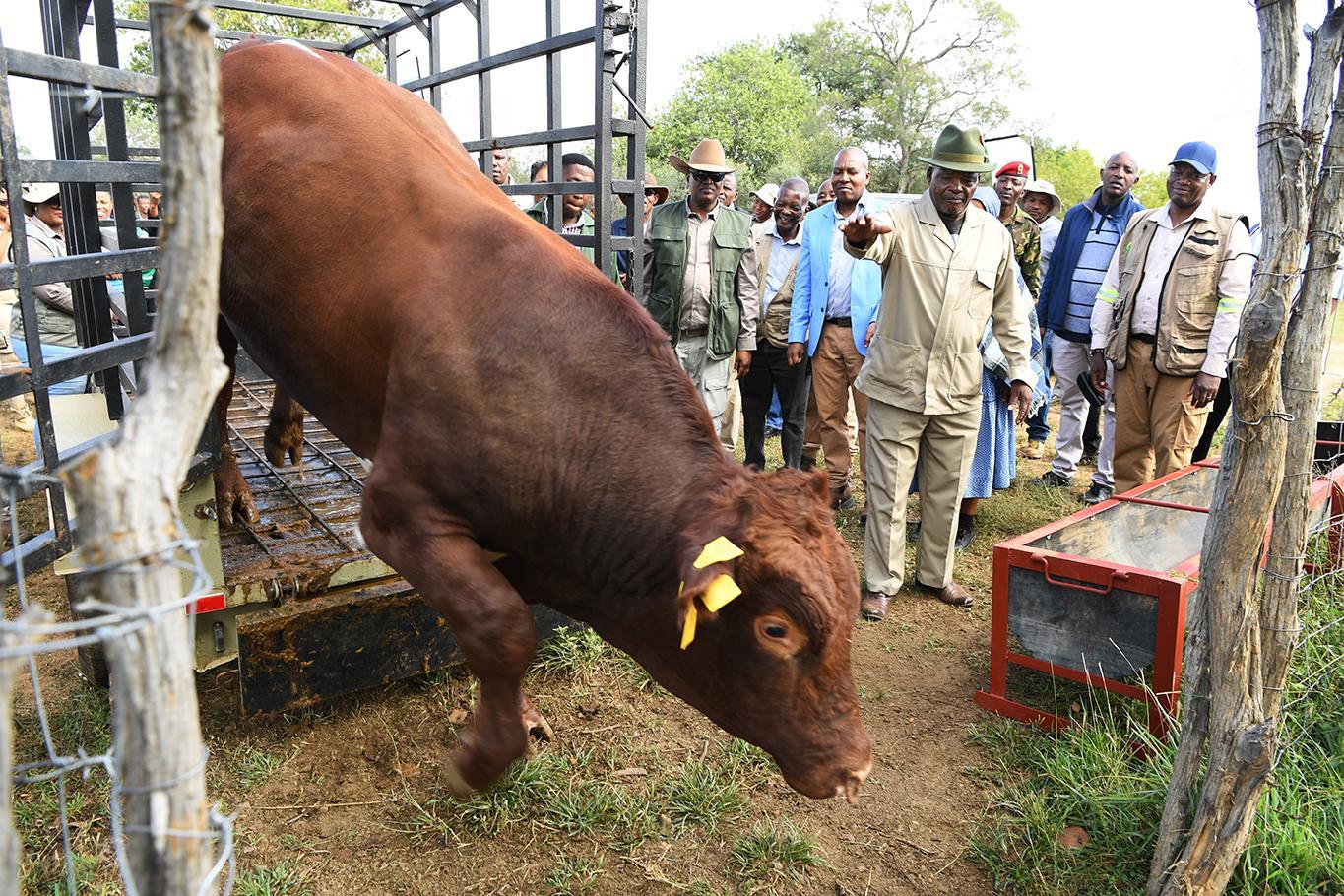Africa-Press – Botswana. Veterinary professionals from twenty-eight countries have converged on Gaborone to focus on enhancing animal health systems and safeguarding livestock production amid rising global and regional disease threats.
Officially opening the Regional Training Seminar for World Organisation for Animal Health (WOAH) National Focal Points for Veterinary Laboratories (Cycle III) on July 7, the Acting Minister of Lands and Agriculture, Dr Edwin Dikoloti highlighted the significance of the initiative in the face of increasing challenges such as cross-border disease outbreaks and risks induced by climate change.
“As countries confront a growing array of animal health threats, the role of veterinary laboratories and focal points becomes more critical than ever,” he said.
Dr Dikoloti said the seminar provided a vital platform to enhance collective efforts toward building stronger, more coordinated veterinary services.
He also underlined Botswana’s commitment to adhering to international standards. In particular, he noted that the country closely follows the Sanitary and Phytosanitary (SPS) Agreement of the World Trade Organisation.
“Compliance with SPS measures, as outlined by WOAH, the International Plant Protection Convention, and the Codex Alimentarius, is essential for protecting our health and ensuring that our products meet global safety standards,” he explained.
Consequently, he said Botswana’s dedication to set standards enables it to remain competitive in international markets while safeguarding domestic health.
While agriculture accounts for only 1.7 per cent of Botswana’s Gross Domestic Product (GDP), Dr Dikoloti emphasised its vital importance to the rural economy.
He said agriculture, particularly livestock production, supports food security, creates jobs, and prevents socio-economic displacement, adding that the government has prioritised modernising the sector to foster inclusive growth and rural empowerment.
Dr Dikoloti further said strengthening veterinary services was crucial not only for public health and economic stability but also for disease prevention.
Dr Dikoloti added that investing in veterinary capacity helps reduce zoonotic disease risks, ensures healthier livestock and bolsters food security.
He praised WOAH’s capacity-building programmes, which enable countries like Botswana to effectively implement international standards.
In addition, he underlined the critical role of WOAH National Focal Points in supporting veterinary services at the national level.
“These professionals facilitate communication with WOAH, promote inter-agency collaboration, and liaise across sectors such as wildlife, aquaculture, and the environment,” he said.
The seminar aims at improving the operational sustainability of veterinary laboratories, enhance biosafety and biosecurity practices and build capacity for emergency response.
He said its objectives were particularly urgent given the regional livestock sector’s vulnerability to diseases like Foot and Mouth Disease which was persistent despite existing sanitary measures.
Dr Dikoloti said the global spread of Avian Influenza, along with emerging diseases such as Lumpy Skin Disease, African Swine Fever and Rift Valley Fever further underscores the need for resilient veterinary systems.
The Acting Minister reaffirmed Botswana’s commitment to regional cooperation and capacity building, stating that together, a veterinary service capable of responding swiftly to new and ongoing animal health challenges can be developed.
In his welcome address, WOAH (Sub) regional representative, Dr Moetapele Letshwenyo, said WOAH was an intergovernmental organisation mandated to set science-based international standards on animal health, welfare, and veterinary public health.
Dr Letshwenyo said veterinary diagnostic laboratories were at the forefront of animal health systems, playing a vital role in disease detection, surveillance and emergency response.
“Without the data and information supplied by veterinary laboratories, disease detection, control, and prevention efforts would be significantly weakened,”said Dr Letshwenyo.
He said that laboratories inherently harbour biological materials of varying levels of danger or threat to animals, humans, and the environment. Therefore, bio threat reduction and the development of sustainable laboratories were essential components of global animal health security.
For More News And Analysis About Botswana Follow Africa-Press






